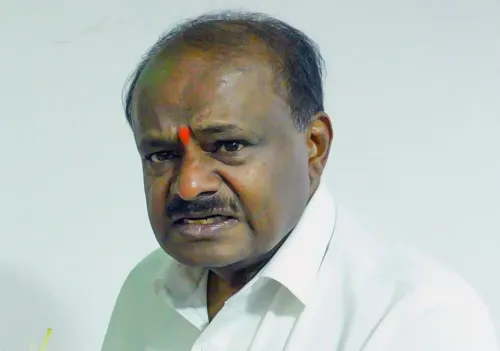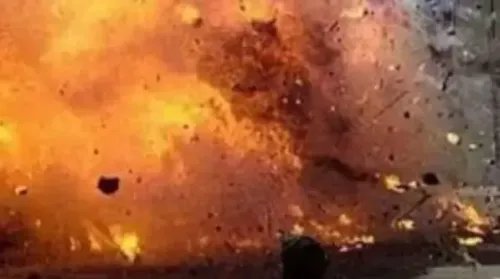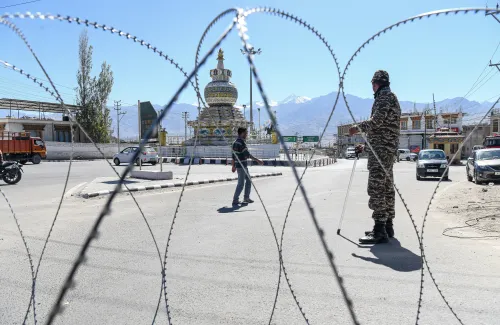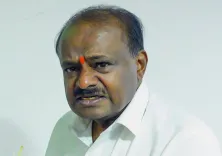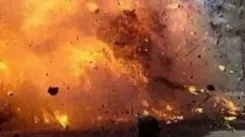What Happened in the Alleged Suicide of Haryana IPS Officer Y. Puran Kumar?
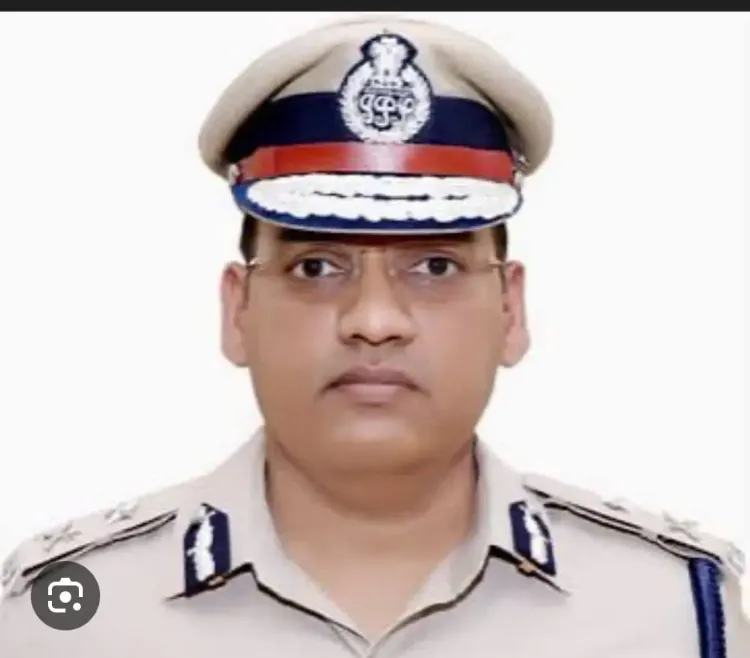
Synopsis
Key Takeaways
- Allegations of systemic harassment against senior officials.
- Public outcry for justice and accountability.
- Calls for reform to address caste-based discrimination.
- Implications for police administration and promotion criteria.
- Need for immediate legal action in similar cases.
Chandigarh, Oct 9 (NationPress) In a shocking incident involving the alleged suicide of Inspector General and 2001-batch IPS officer Y. Puran Kumar from the Haryana Police, the Chandigarh Police registered a first information report (FIR) on Thursday night against individuals named in his suicide note.
The police reported that he died instantly after shooting himself with his service weapon. He left behind a nine-page “final note” identifying 15 current and former officers.
The FIR was filed under Sections 108, read with 3 (5) of the Bharatiya Nyaya Sanhita and Section 3(1)(r) of the SC/ST (Prevention of Atrocities) Act at the Sector 11 police station against those mentioned in his “final note”.
In a heartfelt appeal to Chief Minister Nayab Singh Saini, Haryana cadre senior bureaucrat Amneet P. Kumar expressed her distress over the lack of an FIR and arrests of those implicated in her husband’s suicide note. She demanded justice for her husband, who reportedly shot himself on October 7.
The letter, marked as urgent and confidential, highlighted her concerns about what she termed a “grave injustice” and “complete administrative inaction” that followed her husband’s death over 48 hours ago.
Inspector General Kumar, an officer from the 2001 batch, was discovered dead from a gunshot wound at his residence in Chandigarh.
During a meeting, his widow informed the Chief Minister that the family would refrain from conducting the post-mortem or last rites until an FIR is filed against those named in the suicide note and associated complaints.
She accused the Chandigarh Police of neglecting to file an FIR despite the presence of a detailed nine-page suicide note that allegedly names senior Haryana officials responsible for the officer's “harassment, humiliation and targeted mental torture.”
Her letter conveyed the collective sense of injustice felt by the community following the loss of a respected officer and recipient of the President’s medal for meritorious service.
She described his death as a significant blow to many who viewed the IPS officer as a beacon of empowerment and justice.
In her complaint to the Chandigarh Police, Amneet accused the state Director General of Police Shatrujeet Singh Kapur and Rohtak Superintendent of Police Narendra Bijarnia of abetting the suicide.
She called for the registration of an FIR against both officials under Section 108 (abetment of suicide) and pertinent sections of the Scheduled Castes and Scheduled Tribes (Prevention of Atrocities) Act, 1989.
In her correspondence, she demanded that the suicide note, titled “Final Note”, be regarded as a “dying declaration” under the law, necessitating immediate legal action.
She asserted that the document and her accompanying complaint reveal cognizable offences under the Scheduled Castes and the Scheduled Tribes (Prevention of Atrocities) Act.
“Despite the existence of a clear and detailed suicide note and a formal complaint, no FIR has been registered to date. This note constitutes a dying declaration and must be treated as crucial evidence demanding immediate legal action,” she wrote.
The IPS officer was reportedly distressed over the allegations of his involvement in a bribery case stemming from a complaint by a liquor contractor without appropriate state government approval.
The Rohtak Police registered an FIR on Monday based on the liquor contractor's complaint, which claimed that Kumar's aide Sushil Kumar had solicited a bribe of ₹2.5 lakh in the officer's name.
On September 29, Kumar was reassigned to the Police Training College in Sunaria, Rohtak. Previously, he served as the Inspector General of Police for the Rohtak Range. The contractor provided CCTV footage and audio recordings as evidence to support his claims.
Sources indicated that the IGP was seemingly troubled by the inclusion of his name in the FIR. Shortly after the incident, a will and final note were retrieved from Kumar's official residence.
According to police reports, Puran Kumar allegedly took his own life with his service revolver, and his body was located by his daughter in the basement.
The Leader of the Opposition (LoP) in the Lok Sabha, Rahul Gandhi, has commented on Kumar's death, attributing it to caste-based discrimination and branding the suicide of the Haryana IPS officer as a representation of “deepening social poison.”
“The suicide of Haryana IPS officer Y Puran Kumar is a symbol of the deepening social poison that is crushing humanity in the name of caste,” LoP Rahul Gandhi posted on X. He asserted that the IPS officer endured “humiliation and oppression” due to his caste.
“When an IPS officer has to face such humiliation and oppression because of his caste — imagine the plight of an ordinary Dalit citizen,” LoP Rahul Gandhi remarked.
The National Commission for Scheduled Castes has taken suo motu cognizance of the suicide and issued a notice to the Chief Secretary of Chandigarh and the DGP of Chandigarh Police, requesting an action taken report within seven days.
The IGP’s passing has left police and administrative circles in disbelief. Kumar had previously written to Chief Minister Saini, questioning the promotions awarded to IPS officers.
He alleged that these promotions were unlawfully conducted, bypassing Union Home Ministry (MHA) guidelines and relying solely on the Finance Department's consent. His main argument stemmed from discrepancies in the application of promotional benefits.
While some officers were promoted to the rank of Deputy Inspector General of Police with retrospective effect from January 1 of the promotion year, others, including Kumar, received promotions with immediate effect on the actual date of the order, resulting in significant financial losses and perceived unfair treatment.

